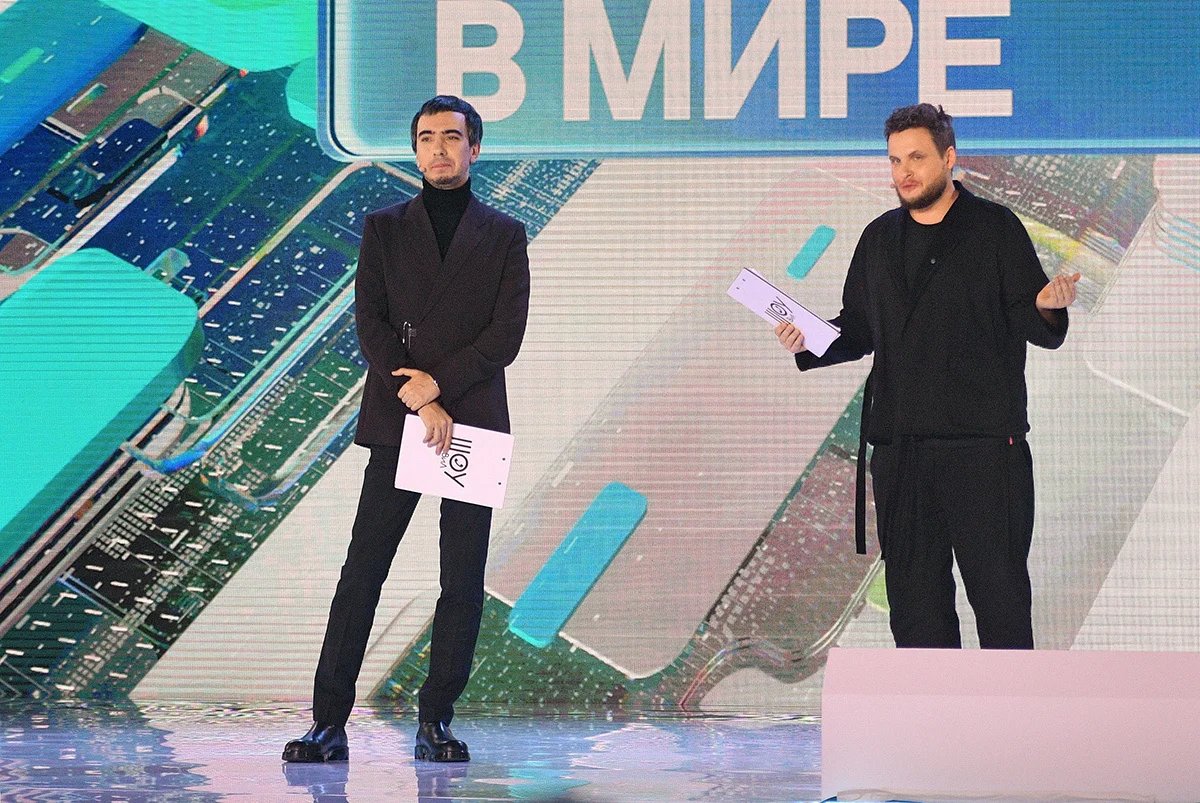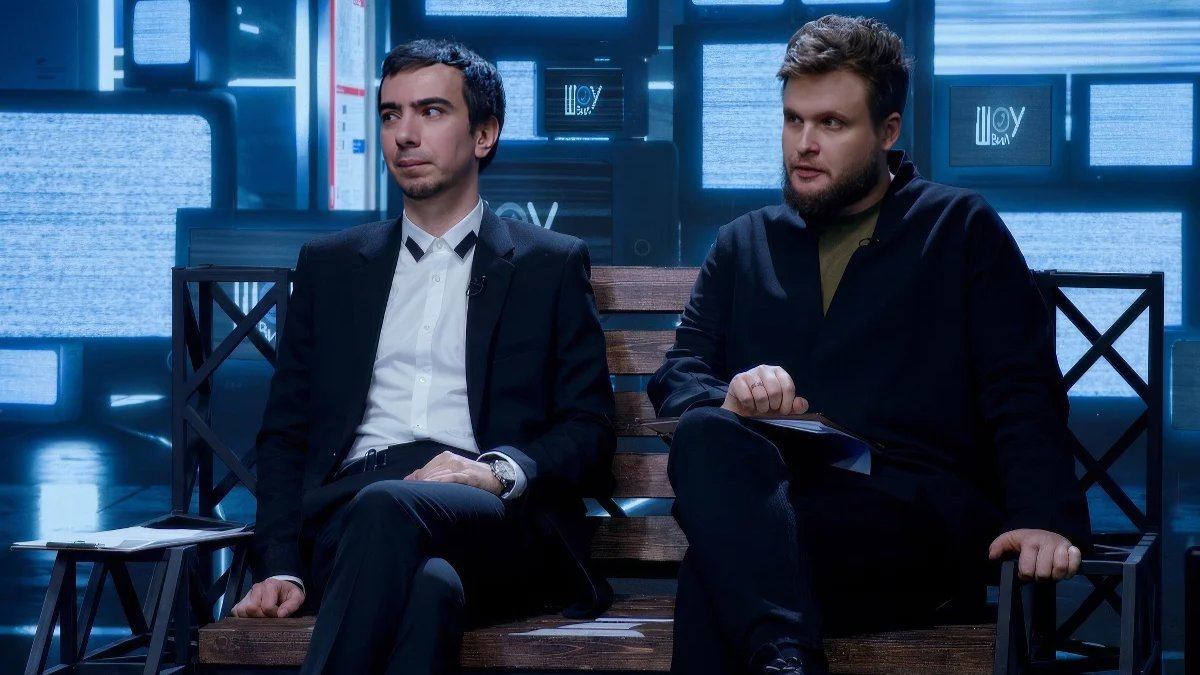Throughout the last decade, Russian comedians Vladimir Kuznetsov and Alexey Stolyarov, better known to the world as Vovan and Lexus, have established themselves as perhaps the most successful pranksters on the planet, having successfully fooled the likes of George W. Bush, Emmanuel Macron and Boris Johnson into having embarrassing telephone conversations, though perhaps unsurprisingly, they have never turned their efforts to Vladimir Putin.
Over the years they have narrowly avoided an international incident after they pranked Turkish President Recep Tayyip Erdogan, and even prompted Putin to issue a rare apology (“they’re harmless guys”) to Elton John after they duped the British singer into thinking Putin had called him up to discuss gay rights.
Neither Vovan nor Lexus enjoys the term prankster, though. “It is not entirely correct to refer to us as pranksters. A prank is, after all, a joke,” Kuznetsov told Nation magazine in 2016, adding cryptically: “We use the technique for other purposes, that are, I believe, more necessary.”
The “prank journalists” burst into the Russian public’s consciousness in 2011 with a phone call to the then-head of Russia’s Central Election Commission, Vladimir Churov, in which Kuznetsov, posing as then-deputy prime minister Arkady Dvorkovich, informed Churov that he would soon be resigning.
Since then, their track record of powerful scalps has been nothing short of astonishing, and includes Belarus dictator Alexander Lukashenko, whom they called pretending to be then Ukrainian president Viktor Yanukovych’s son attempting to negotiate political asylum for his family, late Russian opposition leader Boris Nemtsov — a frequent recipient of the pair’s attention — and dozens of others including Mikhail Gorbachev, JK Rowling and NATO Secretary General Jens Stoltenberg.
Vovan and Lexus have increasingly used deepfake technology to lure people into conversations, according to victims of their prank calls, and often manage to reach their targets through trusted networks.
Their extraordinary success rate in reaching some of the best protected politicians in the world has fuelled speculation about the true extent of their connection with the Russian intelligence services.
Their approach is simple enough; once they have secured access to a public figure, the pair journey from making eminently reasonable comments to ones that are increasingly outlandish, construing their interlocutor’s evasive responses to the intentionally provocative remarks as assent, sometimes even editing parts of the recording out.
However, their recent targeting of Russian dissident authors Boris Akunin and Dmitry Bykov suggests that the duo, whose Kremlin links have long been rumoured but remain unproven, are now turning their attention to Russians critical of the war in Ukraine.
In a call with Akunin in December, Vovan and Lexus hired voice actors to impersonate Ukrainian President Volodymyr Zelensky and his culture minister, and recorded Akunin saying that he supported Ukraine and had even organised a fundraiser to support Ukrainian troops. In the duo‘s subsequent call with Bykov, the writer expressed his desire to “be useful to Ukraine”.
The recordings of the conversations immediately attracted attention from pro-Kremlin politicians and propagandists, with one State Duma deputy taking to television to call Akunin “the enemy” who “must be destroyed”.

Vladimir Kuznetsov (Vovan, left) and Alexey Stolyarov (Lexus, right) on stage. Photo: Emin Dzhafarov / Kommersant / Sipa USA / Vida Press
Kremlin spokesperson Dmitry Peskov called the writers’ comments incriminating regardless of the context in which they were made, adding that the important thing wasn’t “how it was organised, but what they said.” While neither writer now lives in Russia, the consequences for both of them have not been insignificant: both have seen their books removed from sale by major bookstores in Russia, and various legal cases are pending.
The publishers and bookstores who removed the writers from their lists seemed to acknowledge, too, that the Vovan and Lexus phone calls were the reason why they would no longer be publishing or selling Akunin and Bykov’s books. Online bookseller Litres said that Akunin and Bykov were being removed from their platform following statements made by both writers “requiring legal assessment, as they may contradict the laws and regulations of the Russian Federation”.
Both writers have long been outspoken critics of the Kremlin. Akunin now lives in London, having left Russia a decade ago in protest at the annexation of Crimea, but his name was recently added to a Russian government register of “terrorists and extremists” and he has been charged in absentia with “justifying terrorism”. Bykov, who now lives in the US, is no stranger to the consequences of publicly opposing the Kremlin, having been the victim of a poisoning attempt in 2019 due to his dissident views.
Russian literary critic Galina Yuzefovich told the news outlet Present Tense that booksellers and publishers had most likely made the decisions about Akunin and Bykov’s work under “direct and immediate pressure” from the authorities. She said she believed it was not “a matter of some abstract ‘public outrage’, but rather a call from the presidential administration.”
Commenting on his blacklisting, Akunin called the “banning of books” and “declaration of a writer as a terrorist” to be an “important milestone”. “Books have not been banned in Russia since Soviet times, and writers have not been accused of terrorism since the Great Terror,” he said.
In February, following the Akunin and Bykov scandal, Vovan and Lexus made a prank call to Lyudmila Ulitskaya, one of Russia’s most popular contemporary novelists, in which she admitted donating some of the royalties from her books to aid Ukraine. While Ulitskaya was labelled a foreign agent in March, the AST publishing house stopped paying her royalties before then, Kommersant reported, and in February her books were reportedly removed from libraries in Moscow.
Vovan and Lexus usually shrug off journalists' questions about their links to the FSB or GRU and call themselves “self-employed” people who earn money only “partly” from prank calls.
There is indeed no evidence of the duo’s direct co-operation with the Russian authorities, but since the start of the war in Ukraine, any lingering doubts that their activities were being coordinated with the presidential administration have evaporated.
Since October, Kuznetsov and Stolyarov have been hosting their own show on Russian state TV, in which, in front of an audience of millions, they pore over snippets of their pranks taken out of context.
This programme is worthy of mention not only as it clearly refutes their already dubious claim to be legally and symbolically “self-employed”, but also as it’s evidence of the authorities providing a platform and support for what is ultimately a campaign against Russian cultural dissidents. It can hardly be a coincidence that as soon as Vovan and Lexus became presenters on state TV late last year, they began to pay special attention to anti-war artists and writers, such as Bykov, Akunin and Ulitskaya, as well as internationally known cultural figures like Pussy Riot’s Nadezhda Tolokonnikova.

Vovan and Lexus with arch Russian propagandist Vladimir Solovyov, 26 April 2023. Photo: Vovan and Lexus / VK
The sudden shift in the duo’s focus from pranking global political leaders to entrapping members of Russia’s creative classes who have refused to toe the line over the war in Ukraine coincides with the ongoing wave of repressions targeting anyone seen as “undesirable”. A source close to the Kremlin expressed confidence that Vovan and Lexus would continue to dupe Russian cultural figures into conversations about “supporting the Armed Forces of Ukraine” and expressing indifference towards “the death of Russian soldiers”, which the authorities will then use as a pretext to further escalate its repressive measures.
Two years ago, during an award ceremony, Russian Foreign Ministry spokesperson Maria Zakharova appeared to suggest the way the wind was blowing when she presented Kuznetsov and Stolyarov with a clunky standard-issue Russian government telephone. Handing it to them, she said simply: “Call, delight us and the wider world with new revelations. I believe in you.”
Join us in rebuilding Novaya Gazeta Europe
The Russian government has banned independent media. We were forced to leave our country in order to keep doing our job, telling our readers about what is going on Russia, Ukraine and Europe.
We will continue fighting against warfare and dictatorship. We believe that freedom of speech is the most efficient antidote against tyranny. Support us financially to help us fight for peace and freedom.
By clicking the Support button, you agree to the processing of your personal data.
To cancel a regular donation, please write to [email protected]

